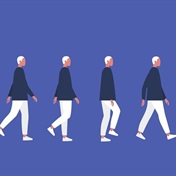US researchers have coaxed stem cells into becoming a type of brain cell that dies off early in people with Alzheimer's disease.
The new technology would provide a ready supply of cells for use in testing new drugs or perhaps even transplants to help restore lost memory, the team reported in the journal Stem Cell.
While most Alzheimer's research is done in mice, the new technique would allow researchers to study a key aspect of the disease in human cells.
"These are cells that are critically important for memory functions," said Dr Jack Kessler of NorthWestern University Feinberg School of Medicine in Chicago, who worked on the study.
Dr Kessler said the team used embryonic stem cells to create the neurons, which are thought to be among the earliest brain cells lost in Alzheimer's disease.
The technique to convert stem cells into neurons was developed by Christopher Bissonnette, a former doctoral student in Kessler's lab, who was inspired by the death of his own grandfather from Alzheimer's disease.
The test
When the two implanted the newly grown nerve cells into the brains of mice, they functioned normally, producing nerve fibres called axons and making the brain chemical acetylcholine, used to retrieve memories from other parts of the brain.
The researchers say the technique can produce an almost infinite number of these cells, giving other scientists the chance to study these cells.
The team has used the same approach to make induced pluripotent stem cells (iPS cells) and convert them into brain cells or neurons.
The advantage of iPS cells, Dr Kessler said, is they can be made from people with known Alzheimer's disease, allowing researchers to study differences between healthy cells and diseased cells.
The team made neurons from Alzheimer's patients, healthy people with no family history of Alzheimer's, and people who are healthy but have a genetic predisposition to develop the disease.
Technology far from ready
"These are real people with real disease. That's why it's exciting," Dr Kessler said.
He said the technology is far from ready, but eventually it may be possible to make replacement memory cells that can be transplanted into people with Alzheimer's.
"This is exactly the type of fundamental research that is needed," Dr William Thies, chief medical and scientific officer of the Alzheimer's Association, said.
"Knowing more about what causes and prevents brain cell death in Alzheimer's disease will undoubtedly be important for the development of future Alzheimer's treatments."
Currently, there are no drugs that keep the disease from progressing. Alzheimer's affects 26 million people in the world.
(Reuters Health, Julie Steenhuysen, March 2011)
Read more:




 Publications
Publications
 Partners
Partners














